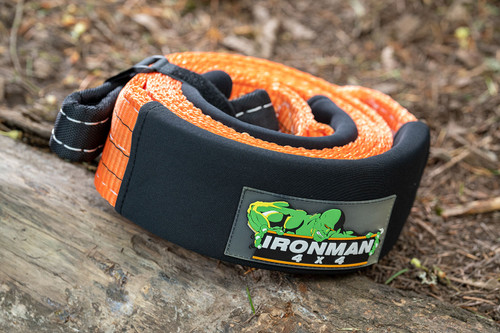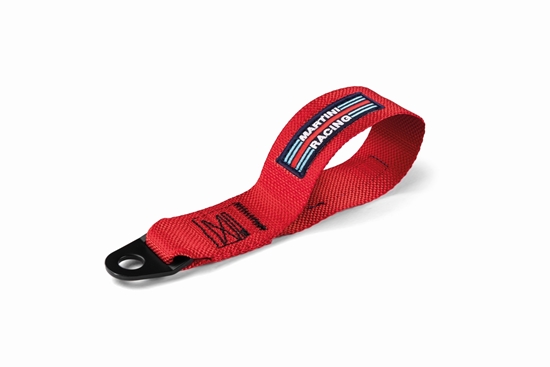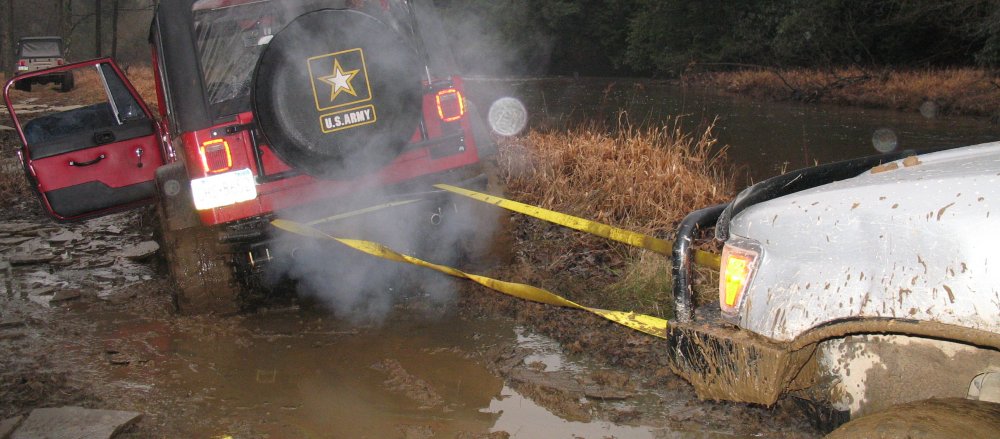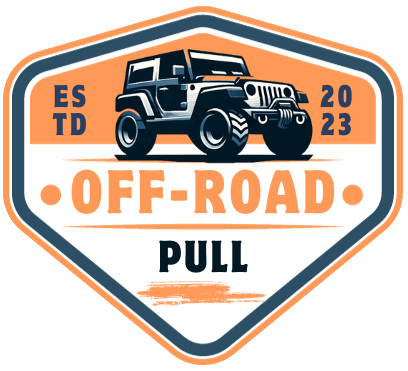When recovering vehicles off-road, choosing the correct strap is essential. Winch extension straps are non-elastic and designed to extend a winch line during a pull. Tow straps, in contrast, are slightly elastic and used to tow a vehicle short distances. This guide outlines the core distinctions, proper use cases, and safety guidelines to help you make the right decision quickly.
Quick Answer
What is the difference between a winch extension strap and a tow strap?
A Winch extension strap is designed to extend the reach of a winch line for heavy-duty recoveries, while a tow strap is primarily used for towing vehicles over short distances. The key difference lies in their elasticity and purpose: winch extension straps are non-elastic and built for pulling, whereas tow straps are more flexible and often used for towing lighter loads.
Winch Extension Straps

Winch extension straps extend the length of a winch cable. They are crucial when the distance to the recovery point exceeds the winch line’s length.
Purpose and Applications
The primary purpose of winch extension straps is to provide additional reach for winching operations. They are commonly used in off-roading scenarios where the winch cable alone cannot reach the anchor point.
Winch extension straps are essential for off-road recovery situations where the distance to the anchor point exceeds the winch line’s reach, ensuring reliable vehicle recovery.
Materials and Construction
Winch extension straps are usually made from polyester or nylon. These materials are chosen for their high tensile strength and resistance to stretching, which is vital for maintaining control during winching.
These straps use durable materials such as low-stretch polyester, ensuring reliability during recoveries.
Advantages of Winch Extension Straps
- Extended Reach: Allows for greater flexibility in winching scenarios.
- High Strength: Can handle significant loads without breaking.
- Durable: Resistant to wear and tear, providing long-term reliability.
Disadvantages of Winch Extension Straps
- Weight: Can be heavy and cumbersome to handle.
- Cost: Generally more expensive than tow straps due to the materials and construction.
Safety Considerations When Using Winch Extension Straps
Always inspect the strap for any signs of wear or damage before use. Regular inspections should include checking for frayed edges, cuts, or discoloration, as these indicate weakening of the strap’s fibers.
Ensure the strap’s load rating surpasses the vehicle’s weight. Avoid sharp edges and abrasive surfaces that could damage the strap.
Tow Straps

Tow straps are strong and flexible, designed for towing vehicles to safer locations or repair shops.
Purpose and Applications
The primary purpose of tow straps is to provide a means of pulling a vehicle over short distances. They are commonly used in situations where a vehicle needs to be moved but is not drivable.
Tow straps are ideal for light-duty recovery, such as moving a disabled car or towing a vehicle on stable terrain.
Materials and Construction
Tow straps are usually made from nylon or polyester. These materials offer a combination of strength and flexibility, which is ideal for towing.
Made from materials like nylon, tow straps provide a controlled level of stretch, which helps reduce jerking motion during towing.
Advantages of Tow Straps
- Flexibility: Easier to handle and store compared to winch extension straps.
- Cost-Effective: Generally less expensive than winch extension straps.
- Versatility: Suitable for a wide range of towing applications.
Disadvantages of Tow Straps
- Limited Reach: Not suitable for extending the reach of a winch.
- Lower Strength: Typically cannot handle as much weight as winch extension straps.
Safety Considerations When Using Tow Straps
Ensure the strap is rated for the weight of the vehicle being towed. Inspect the strap for any damage before use. Securely attach the strap to proper towing points on both vehicles.
Winch Extension Strap vs. Tow Strap: Key Differences

Weight Capacity and Strength
Winch Extension Straps:
- Higher Weight Capacity: Winch extension straps are built to handle significant loads. This makes them ideal for heavy-duty recovery tasks where substantial force is required.
- Strength: These straps are constructed to endure high tension, which is critical when extending the reach of a winch during challenging recoveries.
Tow Straps:
- Moderate Weight Capacity: Tow straps are designed for towing vehicles and generally have a lower weight capacity compared to winch extension straps. They are suitable for moving vehicles over short distances but might not withstand the same heavy loads.
- Adequate Strength: While strong, tow straps are not intended for the intense stress of winching.
Flexibility and Maneuverability
Winch Extension Straps:
- Less Flexible: Due to their construction, winch extension straps can be less flexible and more rigid, which might make them slightly harder to handle in certain situations.
Tow Straps:
- More Flexible: Tow straps are typically more flexible and easier to handle. This flexibility makes them convenient for quickly connecting and disconnecting, especially in straightforward towing scenarios.
Intended Use Cases
Winch Extension Straps:
- Off-Road Recovery: These straps are perfect for off-road situations where the winch needs extra length to reach an anchor point. They are a must-have for serious off-road enthusiasts and professionals who often find themselves in remote areas.
Tow Straps:
- Vehicle Towing: Tow straps are best suited for towing vehicles over short distances, such as moving a broken-down car to a nearby repair shop. They are ideal for more controlled environments where the path is relatively clear and straightforward.
Cost and Availability
Winch Extension Straps:
- Higher Cost: Due to their robust construction and materials, winch extension straps are generally more expensive than tow straps.
- Specialized Availability: They might also be less commonly available in general stores but can be found in specialized off-road and recovery equipment shops.
Tow Straps:
- More Affordable: Tow straps are typically less costly, making them a more budget-friendly option.
- Widely Available: They are more commonly available and can be found in a wide range of retail outlets, including automotive stores and general hardware shops.
Durability and Maintenance
Winch Extension Straps:
- Highly Durable: Designed to withstand heavy use, winch extension straps tend to have a longer lifespan, especially if used correctly and maintained properly.
- Regular Maintenance: Like all recovery equipment, they require regular inspection for wear and tear, and should be kept clean and stored properly to ensure longevity.
Tow Straps:
- Durable, But Less So: While durable, tow straps might not last as long as winch extension straps under heavy use.
- Maintenance Needed: Regular inspection and proper storage are also important to maintain the integrity of tow straps.
To summarize, here’s a quick comparison of winch extension straps and tow straps based on their key features and typical use cases:
| Feature | Winch Extension Strap | Tow Strap |
|---|---|---|
| Purpose | Extends winch line for pulling | Tows vehicles over short distances |
| Material | Low-stretch polyester | Nylon for controlled elasticity |
| Strength | High load capacity for heavy recoveries | Moderate load capacity for light towing |
| Elasticity | Minimal stretch for precise pulling | Flexible for smoother towing |
| Common Usage | Off-road winching scenarios | Towing disabled vehicles |
Choosing the Right Strap for Your Needs
Factors to Consider When Selecting a Strap
Weight of the Vehicle:
- The most critical factor is ensuring that the strap’s load rating exceeds the vehicle’s weight. Overloading a strap can lead to dangerous failures.
- For example, if you have a large SUV, you’ll need a strap with a higher weight capacity compared to what you’d use for a small car.
Type of Recovery Operation:
- Determine whether your primary need is to extend a winch’s reach or to tow a vehicle.
- If you often find yourself in situations where your winch cable is too short, a winch extension strap is the right choice.
- For towing a disabled vehicle over short distances, a tow strap is more appropriate.
Frequency of Use:
- Consider how often you’ll be using the strap. Durability and long-term reliability become more important if you use the strap frequently.
- Frequent users should invest in higher-quality, more durable straps to ensure safety and longevity.
Scenarios Where Winch Extension Straps Are Preferable
Off-Road Recoveries Where the Winch Cable Needs Extra Reach:
- In off-road environments, it’s common to encounter situations where the winch cable cannot reach a secure anchor point. Winch extension straps provide that necessary extra length.
- For instance, if you’re stuck in a deep ravine and the nearest tree or anchor point is far away, a winch extension strap will allow you to reach it and pull your vehicle out.
Heavy-Duty Recoveries Involving Large Vehicles or Significant Obstacles:
- When dealing with large vehicles or challenging recovery situations, the strength and durability of winch extension straps are invaluable.
- Scenarios like recovering a heavily laden truck or a vehicle stuck in deep mud require the robust build and high weight capacity of winch extension straps.
Scenarios Where Tow Straps Are Preferable
Towing a Disabled Vehicle to a Repair Shop:
- Tow straps are ideal for moving a vehicle that can no longer drive under its own power to a nearby repair facility.
- For example, if your car breaks down on the side of the road, a tow strap can be used to tow it to the nearest mechanic.
Light-Duty Recoveries in Controlled Environments:
- In situations where the recovery path is clear and the terrain is manageable, tow straps are a convenient and effective solution.
- This includes scenarios like towing a car out of a shallow ditch or moving a vehicle that’s stuck in snow on a residential street.
Tips for Proper Usage and Safety
Always Use Straps Within Their Rated Capacity:
- Never exceed the strap’s load rating. Doing so can lead to catastrophic failure and potential injury.
- Check the manufacturer’s specifications and ensure the strap’s capacity matches your vehicle’s needs.
Regularly Inspect Straps for Wear and Tear:
- Before each use, inspect the strap for any signs of damage such as fraying, cuts, or weakened areas.
- Regular inspections help prevent unexpected failures during critical recovery operations.
Store Straps in a Dry, Cool Place Away from Direct Sunlight:
- Proper storage extends the lifespan of your straps. Sunlight and moisture can degrade the materials over time.
- After use, clean the straps to remove dirt and debris, and store them in a protective bag or container in a cool, dry place.
Also check: Best Winch Straps
Conclusion
Understanding the differences between winch extension straps and tow straps is crucial for ensuring safe and effective vehicle recovery. Winch extension straps are best suited for heavy-duty off-road scenarios where extending the winch line is necessary, while tow straps excel in light-duty towing applications over short distances.
By selecting the appropriate strap based on your recovery needs and following proper safety guidelines—such as inspecting the straps regularly and using correct anchor points—you can enhance the success and safety of every recovery operation.

